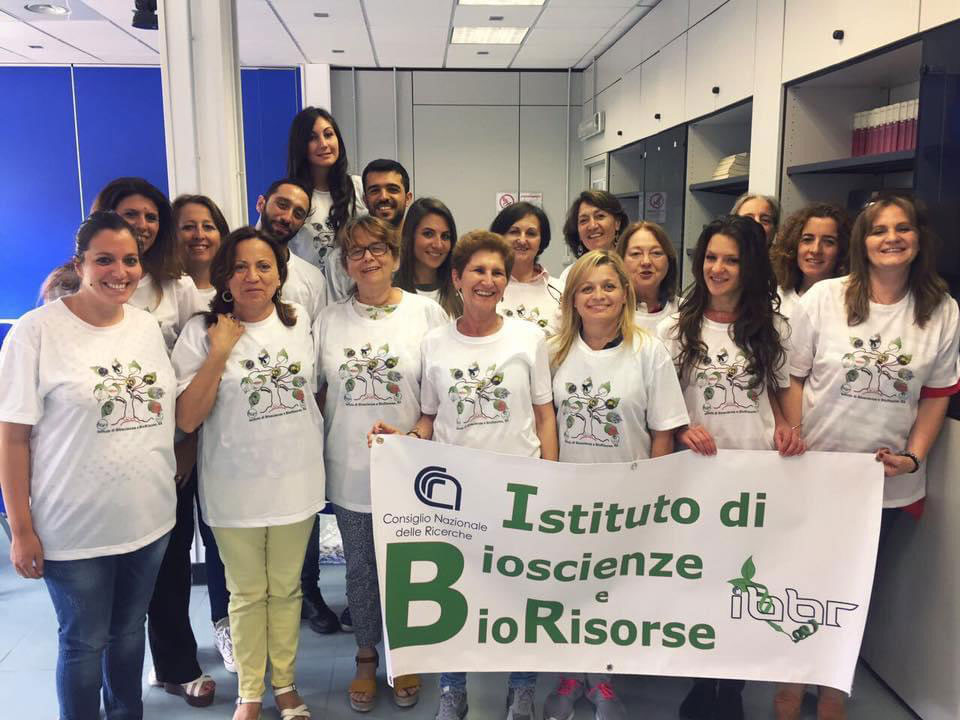IBBR - Division of Naples
The Institute foundation

The building of the IBBR Naples Division
The IBBR Research Division of Napoli was founded in 2013 from the confluence of researchers formerly working at the Institute of Genetics and Biophysics (IGB) and the Institute Protein Biochemistry (IBP). The main research objectives of the IBBR/NA aim at the understanding of the genetic, molecular and biochemical mechanisms that regulate the life processes of cells, microorganisms, and animal and plant organisms. These activities play a fundamental role in basic and applied research, both for the sustainable use of natural resources and for their use in food sector, biomedical, environmental and industrial biotechnology fields.
Research activities
Current research activities at the Napoli Division may be summarized as follows:
- Fundamental research in biology, in plant and animal model systems, in mammalian cell lines, in microorganisms and organisms of agricultural and natural interest
- Study of basic biological processes such as: fertility, neurobiology, development, apoptosis, immunity, metabolism and genomic stability with genetic and biochemical approaches
- Characterization of evolutionarily stable molecules involved in DNA replication and repair, meiotic recombination, DNA topology, chromosomal structure and coupling
- Characterization of proteins and genes involved in the adaptation to biotic and abiotic stress conditions in plants, animals, mammalian cells and microorganisms. Examples are: the response to changes in nutrient availability in the rhizobia-leguminous symbiosis and in diatoms , the response to oxidative stress in stem cells, and the role of oxygen-binding proteins in polar organisms under oxidative and nitrosative stress. Understanding the molecular adaptation to different environmental conditions is obtained through the molecular and biochemical study of the proteins of thermophilic and psychrophilic organisms, through enzymological, omics, meta-omics, and molecular approaches
- Characterization and design of biomolecules for the development of biotechnologies of agricultural, industrial, and analytical interest
- Biotechnological applications aimed at improving growth and resistance in plants, and at the identification, characterization, production, and engineering of bioactive molecules from microorganisms (including extremophiles), plants, , fungi, marine organisms (including psychrophilic organisms), and insects for the development and technological transfer of processes and products in the pharmacological, nutraceutical, cosmeceutical, and agro-industrial fields. Examples are the enzymes involved in the modification of carbohydrates and carbonic anhydrases, and their applications in the field of bioenergy, green chemistry, agro-food, in the capture and sequestration of atmospheric carbon, bioremediation, and the identification of new drugs. In addition: the use of mesophilic and extremophilic enzymes for biotransformation processes of agro-food industry waste for the production of biomolecules with nutraceutical activity and molecules with high value-added in order to promote a circular economy
- Biochemical characterization of phytochemicals of agro-industrial, nutraceutical and cosmeceutical interest, for the enhancement and/or exploitation of edible and non-edible plant resources
- Isolation and analysis of animal and plant extracellular vesicles (EVs) by mass spectrometry and proteomics
- Analysis of the biological activity of nutraceuticals and bioactive natural substances through the study of the modulation of gene expression and miRNA using microarrays/NGS
- Study of the health promoting activity of natural substances in human pathologies including neurodegenerative diseases and cancer through the use of in vitro and in vivo model systems.
- Study of the antioxidant activity of natural compounds using genetically modified cell systems
- Design and identification of new biomolecules of natural origin with antimicrobial and antibiofilm activity against food pathogens for the design of "active" packaging and bio-sanitizing formulations for applications in the industrial field
- Studies in the field of food safety and development of innovative analytical methods for the control of chemical, physical, and microbiological stability in food of plant origin. Identification of new allergens in food and the environment, and their use in the diagnosis of allergies
IBBR-NA is partner of the European Research Infrastructure of Industrial Biotechnologies EU-IBISBA (https://www.ibisba.eu) and of the Italian JRU IBISBA-IT.

People at the IBBR UOS Naples (before pandemic)




